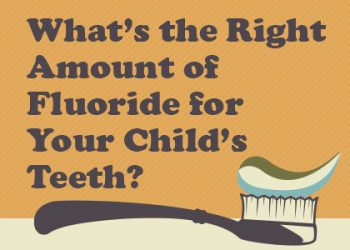What’s the Right Amount of Fluoride for Your Child’s Teeth?
Posted on February 13th, 2025
 Your child’s smile can make your day, and at Brewer Family Dental, we know you want them to love their smile as much as you do—that’s why we’re always happy to inform you of the best prevention and treatment methods!
Your child’s smile can make your day, and at Brewer Family Dental, we know you want them to love their smile as much as you do—that’s why we’re always happy to inform you of the best prevention and treatment methods!
Our prevention lessons and practices are usually focused on gum disease and cavities, but there’s another condition that can affect your child’s teeth: fluorosis. Fluorosis can occur in children ages eight and younger as a result of too much fluoride consumption while their teeth are still forming.
Is fluorosis harmful?
First, we’d like you to know fluorosis isn’t very common, and when we do spot it, it’s usually very mild and unnoticed by people who aren’t dental professionals. If the fluorosis is moderate to severe, you may see streaks or flecks of white, or what looks like rough, pitted spots in your child’s enamel.
Fluorosis is typically unaccompanied by other symptoms, but because we want your child to be confident in their smile, we’d like to help you prevent their enamel from showing anything but strength and shine. To decrease the chances of your child consuming too much fluoride, ensure you’re using no more than the recommended amount of fluoride toothpaste.
Another way to reduce the risk of fluorosis is to breastfeed your child. Using formula usually requires tap water, and most public water supplies contain fluoride, though usually at a low level.
If you’d like to learn more about fluorosis prevention, and treatment, or just schedule a checkup for your child, reach out to your Lexington dentist, Dr. Brewer at Brewer Family Dental, today!
The content of this blog is not intended to be a substitute for professional medical advice, diagnosis, or treatment. Always seek the advice of qualified health providers with questions you may have regarding medical conditions.
Written by Dr. Kevin Brewer